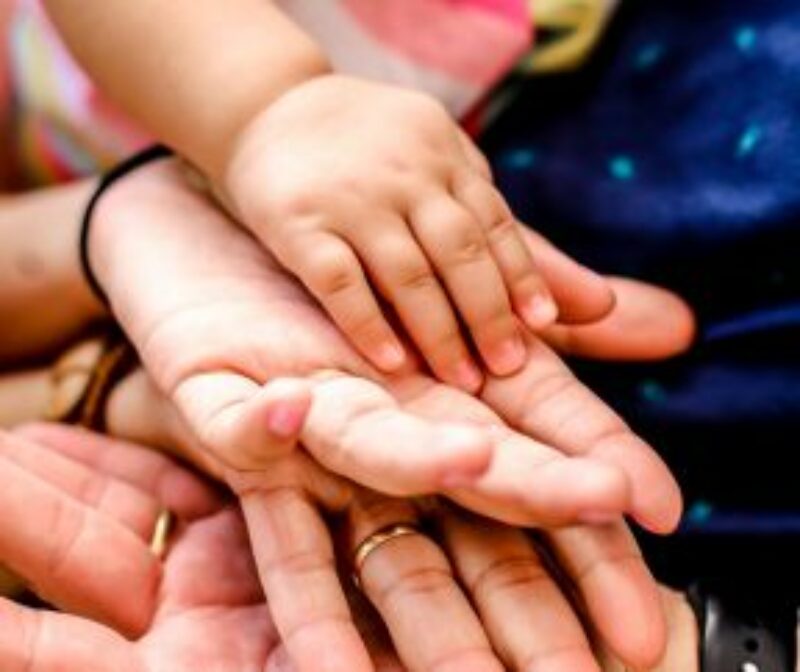I have a vivid memory of my last night at youth group camp as a high school freshman. As wind howled around my group, we sat close together, snuggled in a blanket, singing loudly against the rushing of leaves. For the first time, I felt a deep sense of closeness with the people around me and with God. I transcended myself and felt deeply connected to God in a new way.
A Transcendent Experience
After returning from camp, I saw things in a new perspective. I felt a sense of joy, and wanted it to last; I began to seek spiritual growth with a profound and relentless hunger. I took up spiritual practices such as morning devotions and prayer, and sought greater depth and intimacy in my family and peer relationships. Through these experiences and practices, I noticed that I began to care more deeply about the people in my life. This turning point marked a drastic turn-around, the beginning of an ongoing process of growth.
Spirituality Leads to Character Development
Now as a therapist, looking back on my own experiences and comparing them to current research, I want to identify the mechanisms of spirituality or spiritual transformation that have the capacity to generate authentic and long-lasting character growth. The potential to understand the connection between spiritual transformation and character development presents a powerful tool for fostering positive change in the lives of youth. That’s the motivation behind two studies from the Thrive Center for Human Development, which suggest that spiritual transformation and virtue development are indeed connected for adolescents.
Psychologist, Sarah Schnitker and colleagues at Fuller Seminary’s Graduate School of Psychology studied the conversion experiences of 45 adolescents participating in Young Life camps, a Christian organization that reports a high incidence of conversion and spiritually transforming experiences each year.[1] Spiritual/religious transformation is a distinct change that takes place in an individual, which is separate from other changes such as developmental milestones or transitions taking place in their lives. These changes are often attributed to a supreme being or, in this case, to God. In this study, spiritual transformation was measured using participant self-reported experiences and also by assessing for spirituality and religiousness before and after camp. The researchers collected data one to two weeks prior to attending camp, immediately after camp, and then one year later. They assessed for changes in life satisfaction, depression, self-esteem, loneliness, vitality, meaning in life, virtues such as patience and gratitude, attitudes, and performance.
Dr. Schnitker and colleagues, in the Thrive Center research titled “Spiritual Transformation and Virtue Development in Adolescents in Young Life” found that increases in virtues after transformational experiences were not just due to the adolescents’ engagement in the youth organization, but were the result of changes in their spirituality and religiousness after a reported first-time spiritually transforming experience. The increases in those with first-time conversion experiences led to spiritual and religious transformation and were predictive of virtue increases in their gratitude and patience.
Fostering Spiritual Growth in Youth
So what can you—as a parent, teacher, youth leader, or youth mentor—do to help stimulate spiritual experiences and growth in the adolescents around you?
1. Don’t shy away from talking deeply about spirituality with your adolescents.
Too often, we discount the depth of adolescents’ thinking. You might be surprised that they have an entirely complex belief system or have already had an intense spiritual experience that needs fostering. In my experience as a church youth leader and therapist, I have found that adolescents often won’t tell you what you don’t ask. So don’t shy away, ask!
2. Make the extra effort to help get your child to youth group or camp.
It takes a sacrifice. The cost of youth camp trends upwards with each year, and it can take an enormous amount of sacrifice to get your student on that youth camp bus. Some adolescents who know that money is tight will hold back from asking to go; they may even pretend they don’t want to go because they don’t see it as feasible. More and more, churches and other organizations offer scholarships, sometimes called “camperships” to help kids get to camp. If your child is seeking the experience of camp and time away from the busyness of daily living (and a break from technology), consider the benefits and do all you can to make it happen.
3. Provide opportunities of reflection with adolescents and model a spiritually engaged lifestyle.
Many teachers begin their classes with a quote or a moment of centering or mindfulness. Consider allowing moments of quiet and reflection for your adolescents and do it with them! The best way to show adolescents that those moments of reflection matter is through modeling and having those moments together.
Marking a Shift
For myself and many others, “mountaintop experiences” like the one I had at camp are some of the most memorable times of life, not only because of the joy of a fleeting transcendent moment, but because they mark important shifts in the trajectory of our lives. This is right in line with what Dr. Schnitker and colleagues found in their data: spiritual transformation that grows out of transcendent moments like these often lead to character growth. Although the character change is gradual, the catalyst seems to be these intense spiritual experiences. It seems that following a spiritual awakening many teens are inspired to pursue life-giving relationships and choices. It’s as if they are awakened to the possibility of joy and they respond by doing everything they can to maintain it.
Endnote
[1] Schnitker, S. A., Felke, T. J., Barrett, J. L., & Emmons, R. A. (2014). Longitudinal study of religious and spiritual transformation in adolescents attending Young Life summer camp: Assessing the epistemic, intrapsychic, and moral sociability functions of conversion. Psychology of Religion and Spirituality, 6(2),83-93. doi: 10.1037/a0035359
Continue Exploring

Youth
Helping Youth Rediscover Joy (Part 1): Body Senses and Connection
Joy is a powerful virtue that can improve our wellbeing. Learn how you can nurture joy in youth through their body senses and relationships.

Youth
Helping Youth Rediscover Joy (Part 2): Vocation and Spirituality
Joy serves a guide to what matters most to us. Discover how joy can be nurtured spiritually and vocationally in youth.

Youth
Kids and Community (Part 1): How to Find the Right One for Your Kids to Thrive
How do you find a community to support your family? What kinds of support help families grow spiritually healthy and thrive.

